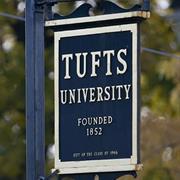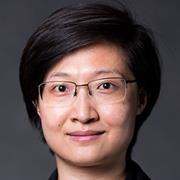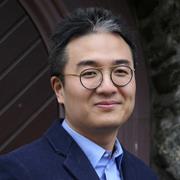Data Analytics
Spring: Sep 15 (international applicants) and Dec 15 (domestic applicants)
Summer: n/a
Overview
The Certificate in Data Analytics provides an avenue for individuals who wish to earn a credential in data analytics, but who may not yet be ready to commit to a full master's program. As a student in the program, you'll learn the skills needed to gather, interpret, and guide data-driven decisions.
Students who complete this four-course certificate program may decide to continue on and apply to the MS in Data Analytics. If accepted into the master's program, the credits earned toward the completion of the certificate will be counted toward the master's program.
Program Outcomes
Data analytics is a fast-growing field and often the key to business strategy and the solution to complex questions. Data analysts are sought after in nearly every field.
Application Requirements
- Application Fee
- Resume/CV
- Personal Statement
- Official GRE or GMAT scores are optional, but not required
- Official TOEFL, IELTS, or Duolingo English Test, if applicable
- A minimum score of 95 on the Internet-based TOEFL is generally considered evidence of sufficient English language ability for graduate study. Minimum equivalent scores of 7 on the IELTS and 115 on the Duolingo exam are also considered indication of sufficient ability.
- Transcripts
- One Letter of Recommendation
Prerequisites
- One undergraduate courses in Calculus (Calculus I)
- One undergraduate course in Statistics
- One introductory course in programming or basic knowledge of a programming language
Please include courses and grades for the prerequisites of Calculus II, Statistics, and Computer Programming on the provided space in the application.
Tuition and Financial Aid
See Tuition and Financial Aid information for GSAS Programs. Note: This program is not eligible for federal loans or Tufts tuition scholarships.
Advisory Board
The interdisciplinary Data Analytics Program is guided by an advisory board of professionals in the field, who help ensure the program provides rigorous courses in the analytical skills that are sought after across the arts, humanities, and sciences as well as within the business community.
Faculty

Alice Mello

Alice Mello
Research/Areas of Interest: Storytelling with Data through interactive dashboards & Experiential Learning. Project-based curriculum in DA & DS for Public High Schools. Women in STEM. .

Philip Ballentine

Philip Ballentine

Marie-Claire Beaulieu

Marie-Claire Beaulieu
Research/Areas of Interest: Greek religion, Greek epigraphy, Medieval Latin, Digital Humanities

Robert Cook

Robert Cook
Research/Areas of Interest: Animal Cognition and Learning

Mary Davis

Mary Davis
Research/Areas of Interest: Labor economics, public health, nursing

John Fu

John Fu
Research/Areas of Interest: Categorical data analysis, survival data analysis, longitudinal data analysis, latent variable analysis, smoking behavior, substance abuse, major depression, disparity in financial access

Shan Jiang

Shan Jiang
Research/Areas of Interest: Urban Analytics; Big Data Analytics; Urban Planning and Science; Spatial Data Science; Urban mobility;

James Murphy

James Murphy
Research/Areas of Interest: Machine learning, harmonic analysis, statistical learning, graph theory, data science, computational mathematics, image processing, signal processing

Jeffrey Zabel

Jeffrey Zabel
Research/Areas of Interest: Applied Urban, Housing, Education, Environmental, and Labor economics.

Shuo Zhang

Shuo Zhang
Research/Areas of Interest: machine learning; natural language processing; audio signal processing; data analytics